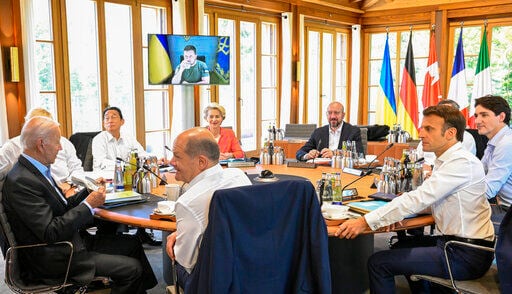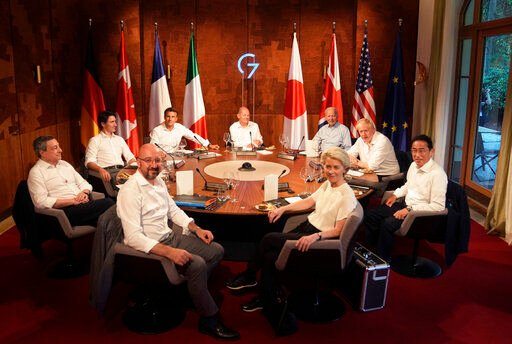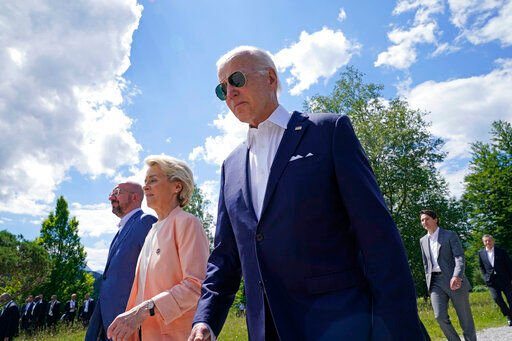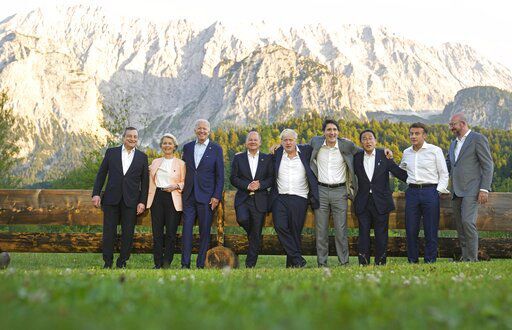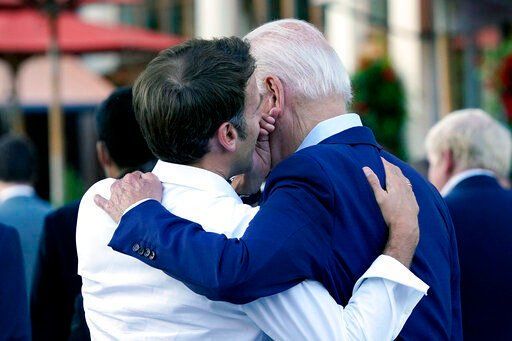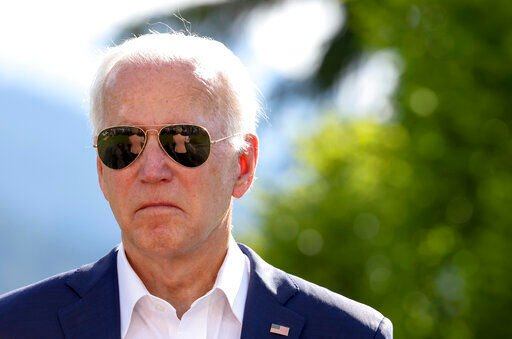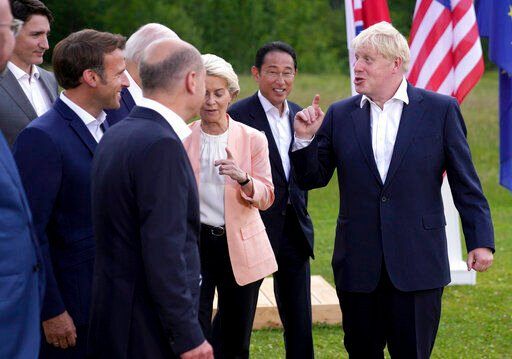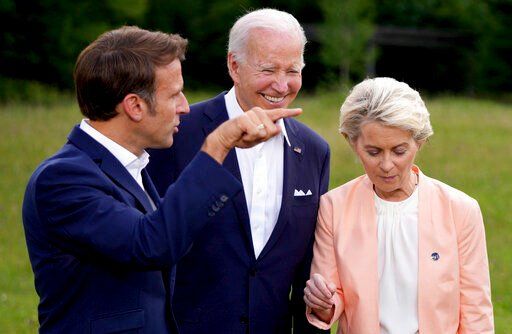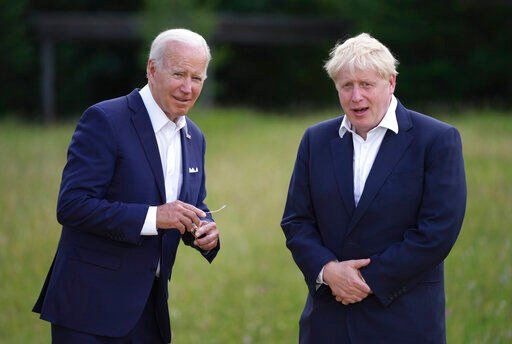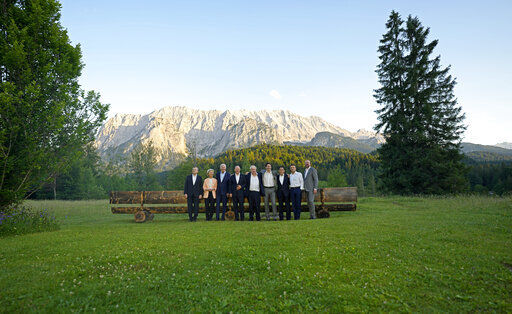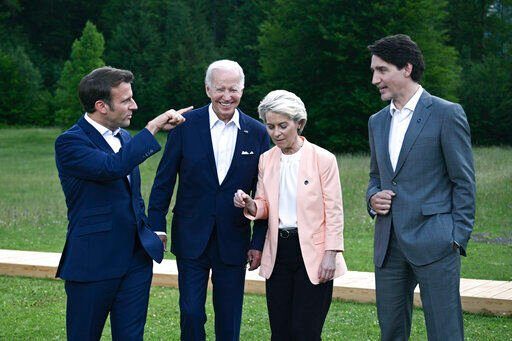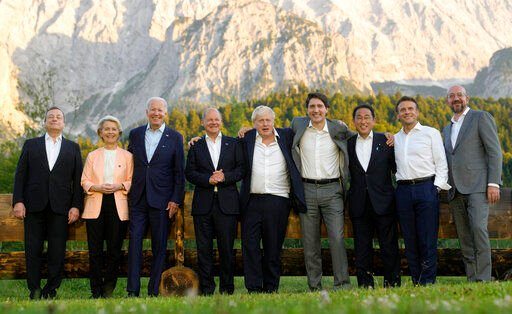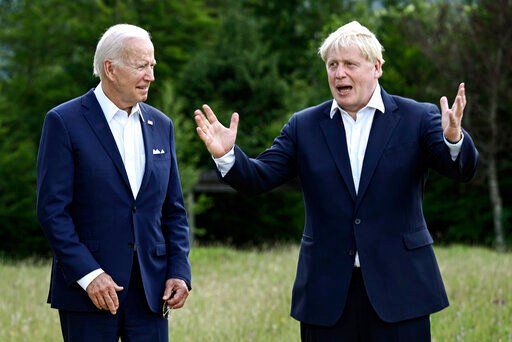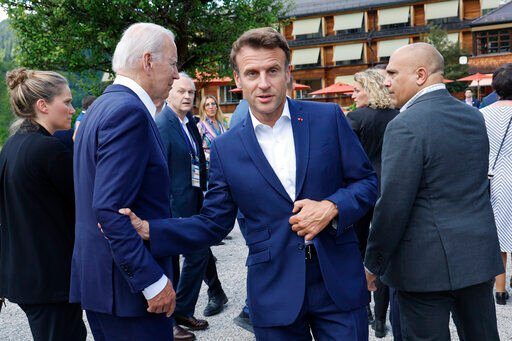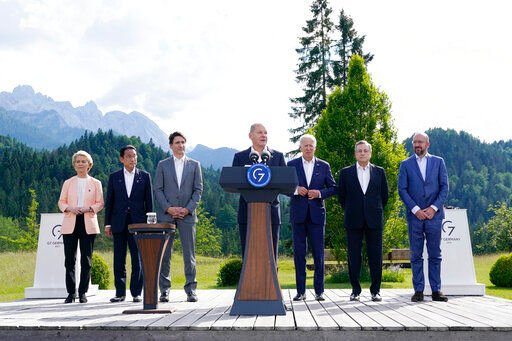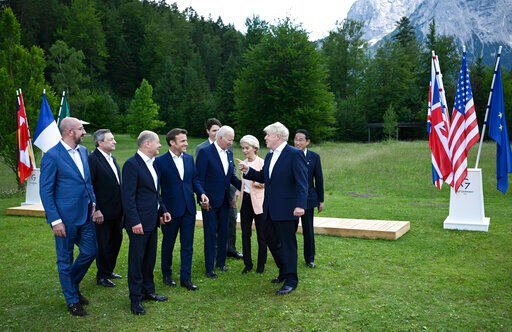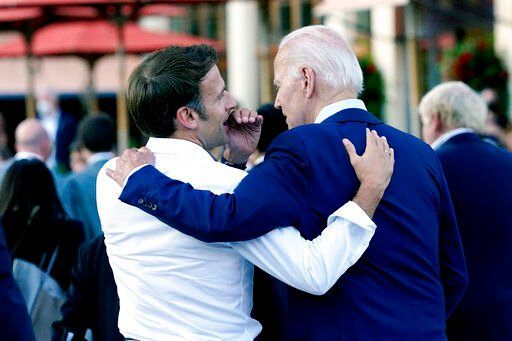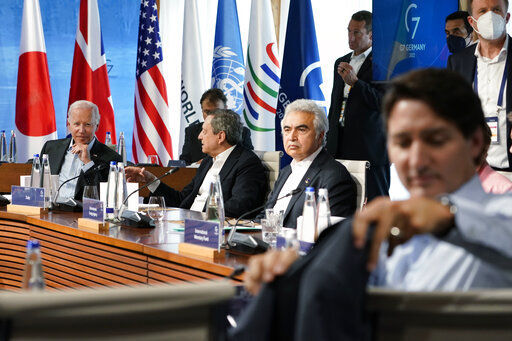ELMAU, Germany — Ukrainian President Volodymyr Zelenskyy on Monday underscored the urgency of helping his country’s military improve its position against Russia in a video meeting with leading economic powers, who in turn pledged to support Ukraine “for as long as it takes.”
Zelenskyy addressed the delicacy of the moment for Ukraine in its war with Russia to the Group of Seven summit as the leaders of the major economies prepared to unveil plans to pursue a price cap on Russian oil, raise tariffs on Russian goods and impose other new sanctions.
In addition, the U.S. was preparing to announce the purchase of an advanced surface-to-air missile system for Kyiv to help Ukraine fight back against Vladimir Putin’s aggression. The official announcement would come shortly after Russian missiles hit the Ukrainian capital of Kyiv for the first time in weeks and as the Russian military has continued a full-on assault on the last remaining Ukrainian redoubt in the Luhansk province in order to take control of the eastern Donbas region.
Ukrainian officials stressed the need for more air-defense systems on Monday after Russia launched a missile attack on a crowded shopping center in the central city of Kremenchuk. Officials said 1,000 civilians were in the mall with at least twenty injured and two dead.
The new aid and efforts by the G-7 leaders to punish Moscow come as Zelenskyy has openly worried that the West has become fatigued by the cost of a war that is contributing to soaring energy costs and price hikes on essential goods around the globe. The Ukrainian leader discussed his strategy for the course of the war, which has transformed into a bloody artillery battle in the country’s west and east.
U.S. national security adviser Jake Sullivan said Zelenskyy’s top request was for further air defense systems, followed by economic support to help his government meet its financial obligations. Zelenskyy also briefed the G—7 leaders on how his administration is using the assistance he’s received to date ”to maximize Ukraine’s capacity both to resist Russian advances, and to pursue counter attacks where possible,” Sullivan said.
Sullivan added that the Ukrainian leader was “very much focused on trying to ensure that Ukraine is in as advantageous a position on the battlefield as possible” in coming months because “he believes that a grinding conflict is not in the interest of the Ukrainian people.”
Zelenskyy also told the leaders that he needs to be in stronger position before engaging in peace talks with Russia, according to a senior French diplomat, who spoke under condition of anonymity in line with the French presidency’s customary practices.
After hearing from Zelenskyy, the leaders pledged in a statement to support Ukraine “for as long as it takes.” They said it is up to Ukraine to decide on a future peace settlement.
Leaders were also finalizing the deal to seek a price cap. G-7 finance ministers will resolve details of how it would work, according to a senior administration official who spoke on the condition of anonymity to preview announcements from the summit.
Some market analysts doubt how effective a price cap on Russian oil would be, as enforcement by the G-7 would likely depend on cooperation from India and China.
“It is questionable whether countries like India and China will agree to cease purchasing Russian oil, especially as it is trading at a significant discount on the global market price,” said Carsten Fritsch, a commodities analyst at Commerzbank.
The largest democratic economies will also commit to raising tariffs on Russian imports to their countries, with the U.S. announcing new tariffs on 570 categories of goods. President Joe Biden on Tuesday increased the tax to 35% on certain Russian-made goods.
Biden is expected to soon announce the U.S. is purchasing NASAMS, a Norwegian-developed anti-aircraft system, to provide medium- to long-range defense for Ukraine, according to a person familiar with the matter, who spoke on the condition of anonymity. NASAMS is the same system used by the U.S. to protect the sensitive airspace around the White House and U.S. Capitol in Washington.
Additional aid includes more ammunition for Ukrainian artillery, as well as counter-battery radars, to help counter the Russian assault in Donbas, the person said. Biden is also announcing a $7.5 billion commitment to help Ukraine’s government meet its expenses, as part of a drawdown of the $40 billion military and economic aid package he signed into law last month.
German Chancellor Olaf Scholz, who is hosting the summit in the German Alps, said after meeting with Canadian Prime Minister Justin Trudeau that “we are taking tough decisions, that we are also cautious, that we will help … Ukraine as much as possible but that we also avoid that there will be a big conflict between Russia and NATO.”
Britain’s Boris Johnson said that, under the circumstances, the G-7 has to “continue to help the Ukrainians to rebuild their economy, to get their grain out, to export their grain, and, of course, we have to help them to protect themselves. And that’s what we’re going to continue to do.”
In Brussels, NATO Secretary-General Jens Stoltenberg said the military alliance will increase the size of its rapid reaction forces nearly eightfold to 300,000 troops as part of its response to an “era of strategic competition.” The NATO response force currently has about 40,000 soldiers, which can deploy quickly when needed.
Stoltenberg commented before he opens a NATO summit Tuesday in Madrid. The organization’s 30 member countries are expected to also agree on further support for Ukraine.
The G-7 already is committed to help finance Ukraine’s immediate needs and plans support to rebuild its economy long term. Finance ministers from the group last month agreed to provide $19.8 billion in economic aid to help Kyiv keep basic services functioning and continue its defense against Russian forces.
A senior U.S. administration official, speaking on condition of anonymity to discuss private conversations among G-7 leaders, said the U.S. and Europe are aligned in their aims for a negotiated end to the conflict, even if the nature of their outreach differs.
Scholz and French President Emmanuel Macron have held active conversations with Putin and Zelenskyy. The U.S. has largely cut off significant talks with Russia.


